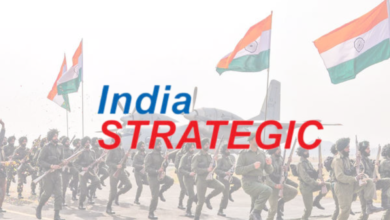India and Russia set new trade target
India and Russia Set USD 100 Billion Trade Target by 2030
By R Anil Kumar
-
Narendra Modi and Vladimir Putin have agreed to boost mutual trade to $100 billion within six years (2030)
-
Russia and India have set a goal of reaching $100 billion in bilateral trade by 2030, according to President Vladimir Putin’s top economic adviser, Maksim Oreshkin
-
Bilateral trade between the nations has already almost tripled in the past two years
-
The volume of bilateral trade between Russia and India had continued to grow, hitting a record $23.1 billion in the first four months of the current year, marking a 10% rise versus the same period in 2023
 Moscow, Russia. Prime Minister Narendra Modi and Russian President Vladimir Putin met in Moscow on July 9, and outlined their goals to eliminate non-tariff trade barriers and achieve a mutual trade volume of over USD 100 billion by 2030.
Moscow, Russia. Prime Minister Narendra Modi and Russian President Vladimir Putin met in Moscow on July 9, and outlined their goals to eliminate non-tariff trade barriers and achieve a mutual trade volume of over USD 100 billion by 2030.
The two leaders also decided to continue dialogue on the liberalization of bilateral trade, including the possibility of establishing the EAEU-India Free Trade Area, according to the Leaders’ Joint Statement released following the meeting.
“Aspiration for elimination of non-tariff trade barriers related to bilateral trade between India and Russia. Continuation of dialogue in the field of liberalization of bilateral trade, including the possibility of the establishment of the EAEU-India Free Trade Area. Achievement of a mutual trade volume more than 100 bln USD by 2030 (as mutually agreed), including increased supplies of goods from India to achieve balanced bilateral trade. Reinvigoration of investment activities of the Parties, i.e. within the framework of the special investment regimes,” the statement read.
They also decided to work on developing a bilateral settlement system using national currencies and the consistent introduction of digital financial instruments for mutual settlements.
The two countries will focus on increasing cargo turnover with India through the launch of new routes for the North-South International Transport Corridor, the Northern Sea Route, and the Chennai-Vladivostok Sea Line. They will also optimize customs procedures through the application of intelligent digital systems for barrier-free movement of goods.
They will work to raise the volume of bilateral trade in agricultural products, food, and fertilizers, and maintain an intensive dialogue aimed at removing veterinary, sanitary, and phytosanitary restrictions and prohibitions.

India and Russia will work for “development of cooperation in key energy sectors, including nuclear energy, oil refining and petrochemicals and expanded forms of cooperation and partnership in the field of energy infrastructure, technologies and equipment. Facilitation of mutual and international energy security, i.e. taking into account the prospects of global energy transition.”
The leaders stressed strengthening interaction in the fields of infrastructure development, transport engineering, automobile production and shipbuilding, space and other industrial sectors; facilitation of entry of Indian and Russian companies into each other’s markets by creating subsidiaries and industrial clusters, and convergence of approaches of the Parties in the fields of standardization, metrology and conformity assessment.
The two nations will promote investments and joint projects across various sectors, including the digital economy, science and research, educational exchanges, and internships for employees of high-tech companies. They will also facilitate the creation of new joint (subsidiary) companies by providing favourable fiscal regimes.
India and Russia will work to promote systematic cooperation in the development and supply of medicines and advanced medical equipment. They will also study the possibility of opening branches of Indian medical institutions in Russia and recruiting qualified medical personnel as well as strengthening coordination in the field of medical and biological safety.
PM Modi and President Putin also decided to work for the development of humanitarian cooperation, and consistent expansion of interaction in the fields of education, science and technology, culture, tourism, sports, healthcare and other areas.
“The President of the Russian Federation and the Prime Minister of the Republic of India instructed the Russian-Indian Intergovernmental Commission on Trade, Economic, Scientific, Technical and Cultural Cooperation to study the identified priority areas and to assess the progress at its next meeting,” the joint statement added.





